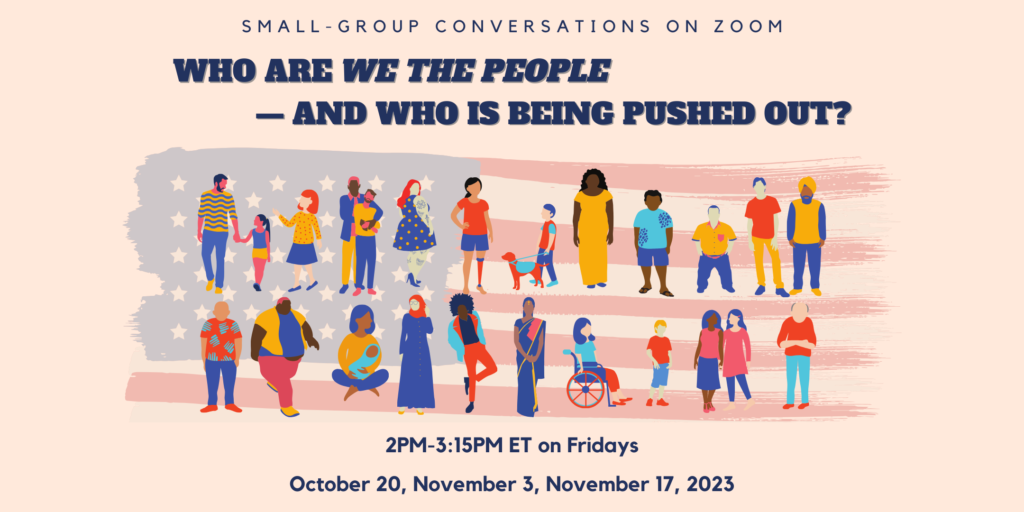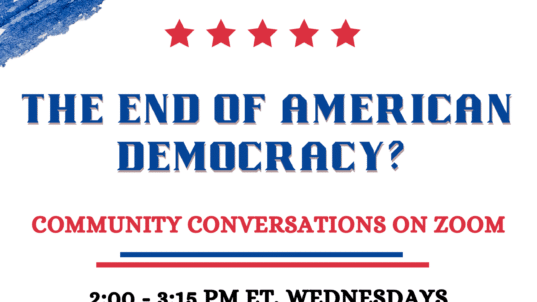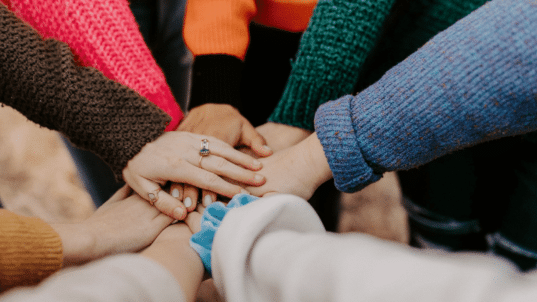
In the third and final session of our small-group conversation series Who are We The People — and who is being pushed out?, participants from around the country gathered online via Zoom to discuss, and collaboratively explore their visions for an inclusive democratic society.
Discussion Summary
What does an inclusive democracy look like? What are its features? How do you know it’s an inclusive democracy?
Everyone having a voice
- Feeling like my vote counts and that it is equal to others—ex. Changing to direct elections at the federal level
- People believing that they have a say in decisions that affect them
- A place at “The Table” for all community members to have access to community discussions and collective decision making
- More town halls and opportunities for people to get together and talk / Citizen assemblies
- Increased power at the local level
- Barriers removed for qualified voters: Ex. at the age of 18 everyone is automatically registered to vote
- Intentionally looking for whose voice is left out of the conversation
- Disrupting the power structures that exist
Representation and Freedom to Be
- Lower the number of people in each congressional district (need a bigger congress to increase representation)
- Everyone’s history and culture are taught in schools
- We would see everyone as a human beings–stop dehumanizing each other
- Citizens would be able to walk freely, as they are, with the same rights of bodily autonomy; the freedom to exist however you want to express yourself
- Everyone feels welcome, no dividing lines
- Having representation creates equity
Participation
- Participation and democracy are the same thing – Voting and democracy are not the same thing
- People taking ownership of our democracy through participation–not just in voting, but also civic engagement and volunteerism
- 4-day work week with the expectation that half a “weekend” day be spent on civic engagement
- Need heavy participation on a local level
- We would see more reflective patriotism—the terms patriotism or patriot are controversial to some people as it has become politicized and weaponized. As opposed to blind patriotism, reflective patriotism is aspirational and seeks and works for positive change.
- Starts in the schools and homes
- Incumbent on those in charge to make it enticing to vote
- Encouraging mail-in voting, not questioning it
- Non-violent engagement
- Having citizenship agreement to prompt civility
- Traveling and sharing language and culture breaks walls down
- There is a great desire for change today and willingness to act on it, just uncertainty on how to do that
Education
- Equal opportunity and access to education
- Having an democratic educational system that dismantles ideologies and increases awareness
- Increased educational opportunities for people incarcerated–teach them what they never had or took the opportunity to learn before–so they can be contributing members in democracy
- Develop ability in young people to build up skills to talk and discuss
Quality of Life
- Reduced homelessness
- Equal opportunity and access to healthcare
- Reduced weapons and violence
- High speed internet access for all – Computer rooms in community centers
Politics
- Money would not be part of politics
- “Civic renaissance” – rank choice voting, congressional redistricting, one ballot initiative
- More than two political parties
- Right to vote in DC
- Filter out media, knowing which media outlet you are receiving information from. Possibly having a comparison between outlets.
- What does the future look like with AI writing policy?



